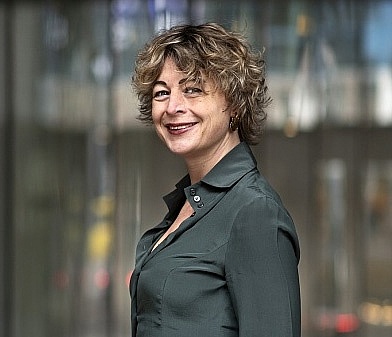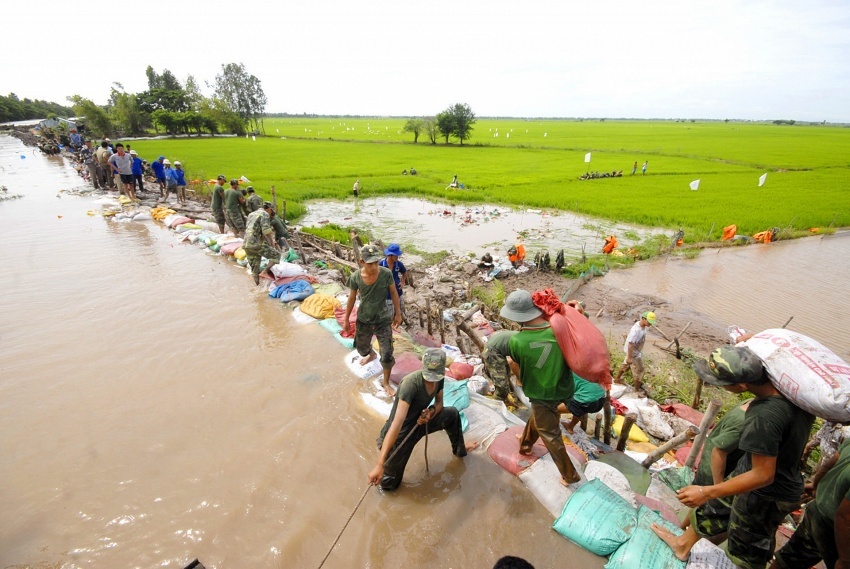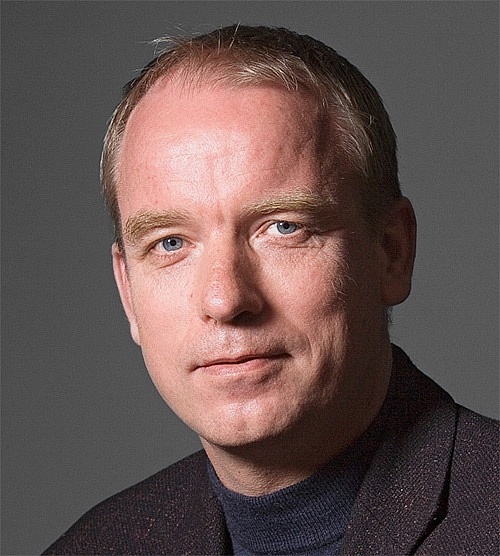Mekong Delta on its way to achieve water, food, and energy sustainability for all
Vietnamese Deputy Prime Minister Le Van Thanh has approved the master plan for the Mekong Delta region. Under the decision, the government will focus on developing high-quality commodity agriculture, combining trade, logistics services, eco-tourism, and industry. Ambassador Akkerman, what opportunities could you see for investors to develop their projects in these sectors?
 |
| Dutch Ambassador to Vietnam Elsbeth Akkerman |
Ambassador Akkerman: The Ministry of Planning and Investment's (MPI) master plan is based on developing a sustainable and economic resilient agricultural sector. This includes a transformation from intensive rice production to high-value crops like fruits and aquaculture.
The Netherlands has always been a strong partner in sustainable agricultural development. The MoU on the Agricultural Transformation Programme signed by both prime ministers in 2019 has resulted in cooperation in different fields.
We are working on value chain development in aquaculture and horticulture, as well as on investments in more sustainable production methods like saline agriculture and water-friendly aquaculture.
Thus, we see ample opportunities to invest in the food system, which includes large-scale, high-value food production, contract farming, input supplies for new crops, cold chain development, and research and development.
The Mekong Delta is facing risks by climate change. Thus, developing such industries will not be an easy task, especially when it comes to resources. What is your comment on this?
Ambassador Akkerman: Allow me to first put sea-level rise into perspective. The current rise is 4mm per year while the Mekong Delta is sinking 1-3cm per year due to groundwater extraction and soil compaction. This is a much bigger issue in the short and medium terms.
Both processes add up and, in the worst case, one-third of the delta is below mean sea level in 2050 and more than 90 per cent in 2100. Since there will not be enough sediment in the Mekong to compensate for the sinking and sea-level rise, the first thing to do is to tackle the root cause – the industries, farmers, and cities should stop overexploitation of groundwater and switch to surface and rainwater.
On the one hand, there is an increasing need for public investment to strengthen dykes around urban and industrial zones and pumping stations to get the rainwater out of those areas. But nature-based infrastructure will often be less expensive, more attractive and sustainable in the long run.
Well-known examples are water parks that can store water during storms. And also mangrove forests will trap sediments and thus build up a natural coastal defence. In Vietnam, the willingness to use nature-based solutions and the public expenditure rules are not always conducive to realising such green infrastructure. Also, the borrowing limitations of the government are not enabling to invest now for a future return in terms of sustainability.
Besides public resources, there is also a need for private investments. To reduce the climate-related risks, freshwater agriculture can switch to brackishwater aquaculture in low-lying parts of the region. This provides higher incomes for the farmers but requires often a financial incentive for them to kick-start the switch. Private banks and climate funds can provide such resources. Climate change is thus not only a risk but a chance: an opportunity for some to develop new business models.
 |
| The Mekong Delta is facing big risks caused by climate change |
Under the decision, no new coal-fired power plants will be built. Do you think that this is a wise move in the context that Vietnam is suffering from serious electricity shortages?
Ambassador Akkerman: Definitely. The coal phase-out has clear socioeconomic implications for Vietnam, including air pollution which affects health.
There are both direct and indirect costs from coal power due to the higher and fluctuating costs of coal as well as environmental and health costs. There will also be costs as a result of carbon trading adjustments on products made with coal-fired energy.
I don’t think that the coal phase-out will have a negative impact on Vietnam's power production and supply. Vietnam has everything to become a renewable energy superpower in the coming decades, and the Mekong Delta can play a major role in that. The solar energy revolution has largely taken off in the past two years; impetuous growth of the wind energy sector is expected in the coming 5-10 years.
With its long coastline and a strong supply of wind, Vietnam is well-positioned to fully meet its own energy demand with renewable energy and even become an energy exporter in the region as well.
Royal HaskoningDHV has led the development of the Mekong Delta Integrated Regional Plan for the MPI. What experiences and lessons can you share with Vietnam in the upcoming plans for other regions of Vietnam?
 |
| Paul Bergsma, representative of Royal Haskoning DHV |
Paul Bergsma: This was the first integrated regional master plan. It should function as an umbrella plan that substitutes many other plans.
At the moment, Vietnam has 19,000 plans and strategies and these integrated regional plans are a way to reduce those and prioritise.
Our experience in this regard is promising. Currently, the implementation plan and the provincial master plans are formulated and it will take some time before actions on the ground are materialising.
The master plan will help the region adapt to the effects of climate change, sea-level rise, land subsidence, and upstream dam development, whereas it is also expected to boost socioeconomic development.
A key proposal in the master plan is to develop hubs based on international experience. One central hub is planned in Can Tho city and seven agro-industrial hubs in provincial centres but with regional functions. The hubs will concentrate on agro-processing, industrial development, trade and commerce, and education and training.
What is the outlook of the Vietnam-Netherlands cooperation in environmental protection, climate change response, and development of clean energy?
Ambassador Akkerman: The Netherlands and Vietnam are both vulnerable to climate change and contribute to it. We are victims and culprits at the same time. Both countries expressed the political will to take their responsibility to live up to the Paris Agreement. And we both have to invest heavily to adapt to ongoing and future climate change.
By strengthening cooperation between governments, knowledge institutions, major corporations, NGOs, and financial institutions, we can make the energy transition happen in Vietnam.
The Netherlands will continue its bilateral dialogues and comprehensive framework. We will contribute to multilateral initiatives such as the Mekong Delta Working Group, the International Partners Committee of the Agricultural Transition Program, the Vietnam Energy Transition, and others.
The approval of the Mekong Delta Integrated Regional Masterplan coincides with the start of a few Dutch-funded initiatives such as the Partners for Water Program, the Agricultural Transformation Program, and the Blue Dragon Project.
These programmes reinforce each other since water, food, and energy are interrelated. A good example is the aquifer storage and recharge project called FAME. The idea is to store surface water in the sandy soils during the wet season and take it out at the start of the dry season. This would prolong the production time of farmers by six weeks, and farmers then get more options to grow cash crops.
The Netherlands already has experience and expertise in such sustainable and clean technologies. Through the two mentioned government-funded programs and many others, as well as through Dutch private sector companies, we continue cooperating in the Mekong Delta to achieve water, food, and energy security for all.
What the stars mean:
★ Poor ★ ★ Promising ★★★ Good ★★★★ Very good ★★★★★ Exceptional
Related Contents
Latest News
More News
- Vingroup consults on carbon credits for electric vehicle charging network (January 28, 2026 | 11:04)
- Bac Ai Pumped Storage Hydropower Plant to enter peak construction phase (January 27, 2026 | 08:00)
- ASEAN could scale up sustainable aviation fuel by 2050 (January 24, 2026 | 10:19)
- 64,000 hectares of sea allocated for offshore wind surveys (January 22, 2026 | 20:23)
- EVN secures financing for Quang Trach II LNG power plant (January 17, 2026 | 15:55)
- PC1 teams up with DENZAI on regional wind projects (January 16, 2026 | 21:18)
- Innovation and ESG practices drive green transition in the digital era (January 16, 2026 | 16:51)
- Bac Ai hydropower works stay on track despite holiday period (January 16, 2026 | 16:19)
- Fugro extends MoU with PTSC G&S to support offshore wind growth (January 14, 2026 | 15:59)
- Pacifico Energy starts commercial operations at Sunpro Wind Farm in Mekong Delta (January 12, 2026 | 14:01)

 Tag:
Tag:

























 Mobile Version
Mobile Version